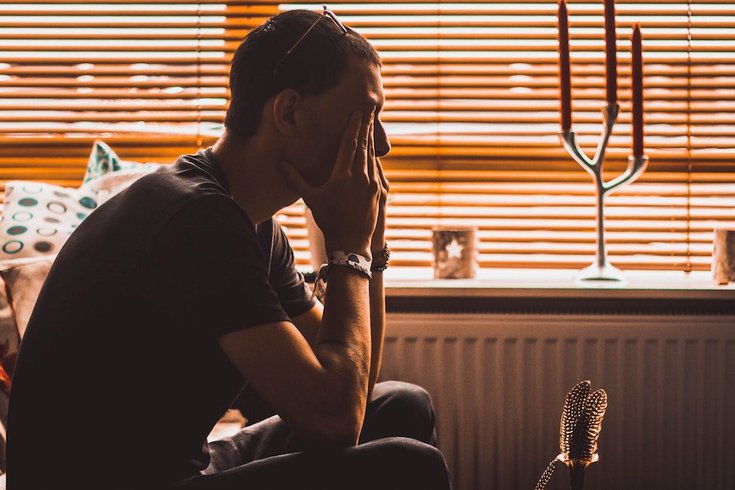
June 30, 2023
 Christopher lemercier/Unsplash.com
Christopher lemercier/Unsplash.com
New research shows men are more than twice as likely to die of drug overdoses than women. The research underscores the influence that behavior and social factors, including gender stereotypes, have on a man's health.
Increasingly, the scientific community is recognizing the influence of behavior and social factors on a man's health. The most recent example is a widely publicized study that found men died of overdoses at a rate 2-3 times greater than women from 2020 to 2021.
The results, which were consistent across the U.S. and among drug categories, have prompted experts to look beyond the biological differences in men and women for answers. Researchers acknowledge that men are historically more likely to misuse drugs than women, and that more frequent use and larger doses may increase their overdose risk. However, when comparing established levels of misuse with overdose mortality, researchers found the gap between men and women substantially greater. The scientists did not discount the role of biological factors behind these differences, but suggested that behavioral, social and gender-related factors should be the subject of further examination.
So why are men more likely to develop substance use disorders? Research from the Pew Charitable Trust sheds light on that question, citing three major factors that may contribute to substance use disorders in men.
First, the impact of trauma, an important risk factor in SUD, appears to be more significant in men. This includes adverse childhood experiences – abuse, neglect and other traumatic experiences before age 18 – and physical or sexual abuse, and parental separation or divorce. All have a stronger connection to SUD in men.
A second factor is post-traumatic stress disorder. Men with PTSD are almost twice as likely as women to also have a substance use disorder.
The third factor is mental illness. Among adults with a mental illness, almost half (45.6%) have a substance use disorder. Furthermore, rates of suicide are almost four times greater for men. Federal data shows that 40% of deaths by suicide in 2014 involved alcohol intoxication, 30% involved opioids and 21% involved marijuana.
Older men are not exempt from the risks of overdose, as data from the U.S. Centers for Disease Control and Prevention emphasizes. As of 2020, overdose death rates for older adults had increased over the two prior decades, though the rate was the lowest amount among all age groups. Between 2014 and 2020, overdose deaths in older men increased annually by 14%, more than doubling during this period. And when compared to women, overdose rates in older men were 2.1 times greater.
A 2022 report in the journal Addiction & Health found that substance abuse among older adults has been increasing due to changing demographics and the aging population. Researchers believe this increase can be partially attributed to baby boomers who had significant exposure to alcohol and drugs when younger. The publication lists alcohol, prescription drugs such as opiates and benzodiazepines, and over-the-counter medications as the most abused substances.
In another report from the NIDA that looked specifically at substance misuse in older adults, the agency describes how aging may increase vulnerability to substance misuse. Drugs can worsen conditions like mood disorders, heart and lung disease and memory loss. Other risks include impaired judgement and reaction time that can spur falls and car accidents. Prescription opioids used for pain relief remain a concern as well.
Do male behavioral norms impact their misuse of drugs? Many experts believe so. Rather than seeking medical treatment or therapy for psychological distress and mental health problems, men are often more inclined to use drugs to manage their pain. Harvard University says when men don't adhere to masculine gender stereotypes, like showing vulnerability, they face backlash. This, of course, discourages them from seeking help and turning to alternative antidotes for their pain.
And while contemporary views of masculinity are slowly diverging from traditional norms that include suppressing emotions and only seeking medical care under extreme conditions, and the term toxic masculinity has emerged as a means to highlight the negative dimensions of male behavior, the American Psychological Association reminds us that traditional views on "being a real man" still persist. Substance abuse is a risk to men who seek to adhere to such traits.
The connection between a man's social priorities, behavior and his health, along with the destructive influence of traditional male norms, have been the cornerstone of my advocacy and a frequent topic of these columns. While it is incredibly sad that this most recent study on overdose deaths is the vehicle prompting a deeper look into the influence of gender-related factors on men, I see it as a positive outcome. The findings may just be the shock needed to finally comprehend that men refusing to seek care for their physical and mental health problems is more than "boys being boys." Illegal drugs and alcohol are not, and have never been, the answer. With fentanyl and other substances contaminating the nation’s drug supply, the risks are even greater.
Men endure real challenges to their health and well-being. Trauma, childhood neglect, PTSD and mental illness are serious problems that justify expert medical care. It is not unmanly to seek out help, and men should not feel like they will be subject to ridicule if they acknowledge vulnerability.
Most importantly, the people who love these men need to step up and reinforce a new culture of health and let their men know that seeking help is perhaps the manliest thing they can do for themselves and the people who love them.
Louis Bezich, senior vice president and chief administrative officer at Cooper University Health Care, is author of "Crack The Code: 10 Proven Secrets that Motivate Healthy Behavior and Inspire Fulfillment in Men Over 50." Read more from Louis on his website.